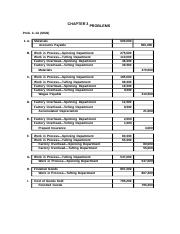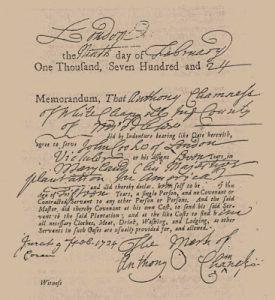Individual Taxpayer Identification Number Internal Revenue Service

An ITIN will expire at the end of the current year if it is not used on a federal tax return in the last 3 years. If you need to renew your ITIN, you’ll follow the same process as applying for a new ITIN. However, if you mail in your renewal application, you can simply send along a form W-7 with supporting documents—no need to attach a tax return.
Instead, they can apply for an Individual Taxpayer Identification Number, or ITIN, by submitting Form W-7 to the IRS. The visitor must sign an honorarium statement indicating they have not received honoraria from more than five educational institutions in the previous six-month period. The honorarium statement is automatically generated by GLACIER, once the individual completes their information in the system.
TURBOTAX DESKTOP GUARANTEES
A Social Security number is only issued for citizens and qualifying resident aliens, such as green card holders. This number keeps track of the years you’ve worked in the U.S. and your lifetime earnings. An Individual Taxpayer Identification Number is a tax processing number issued by the IRS. The purpose of an ITIN is to ensure those who work in the U.S. have a method of paying taxes, even budget tracker and planner if they don’t qualify for a Social Security number (SSN) from the Social Security Administration.
How to Get an ITIN Number: An Easy Step-by-Step Guide
Unlike other forms of ID, ITINs only have one purpose—tax filing and reporting. Having an ITIN number won’t make you eligible for benefits, such as Social Security or earned income credits that provide refunds to some low-income filers. You can file Form W-7, Application for email marketing case study IRS Individual Taxpayer Identification Number (ITIN), with your federal income tax return.
USA.gov is the new centralized place for finding government benefits for health care, housing, food, unemployment, and more. Official websites use .gov A .gov website belongs to an official government organization in the United States. If you need an ITIN, find out how to get the state’s Excluded Workers Fund payments.
More In Credits & Deductions

Assuming you qualify for an Individual Taxpayer Identification Number (and you follow the W-7 form instructions correctly), you should receive an ITIN within seven weeks. But due to potential processing delays, it’s advisable that you add some extra wiggle room. This is especially true if you’re mailing your ITIN application to the U.S. from overseas as an expat or non-resident. With TurboTax Live Full Service, a local expert matched to your unique situation will do your taxes for you start to finish. Or, get unlimited help and advice from tax experts while you do your taxes with TurboTax Live Assisted. And if you want to file your own taxes, you can still feel confident you’ll do them right with TurboTax as we guide you step by step.
The above article is intended to provide generalized financial information designed to educate a broad segment of the public; it does not give personalized tax, investment, legal, or other business and professional advice. An Individual Taxpayer Identification Number (ITIN) is a 9-digit number the Internal Revenue Service (IRS) issues to people filing a tax return who are not U.S. citizens and who do not have or are not eligible for a Social Security number. If you are not a U.S. citizen and do not have a Social Security number, learn how to get and use an Individual Taxpayer Identification Number (ITIN) to file a federal tax return. Anyone who needs to file a U.S. tax return can get an ITIN, regardless of their U.S. immigration status. At Expat CPA, we specialize in helping non-residents, US citizens and expats remain compliant with the latest IRS tax codes. In addition to dedicated support for W-7 form instruction, we can also help you determine your expat eligibility for Social Security and other federal benefits.
Apply for an ITIN in-person using the services of an IRS-authorized Certifying Acceptance Agent. This will prevent you from having to mail your proof of identity and foreign status documents. Certain individuals who do not have an individual taxpayer ID number (ITIN) or a Social Security Number will be required to apply for an ITIN.
These individuals include students who receive scholarship or fellowship payments, as well as those who receive honorarium or lecture fees. The application process for an ITIN requires an in-person appointment with a UCLA Acceptance Agent. But non-citizens without work authorization sometimes have to file U.S. tax returns, too—if they have income from U.S. sources, for example, or if they are entitled to a refund of withheld money under a tax treaty. This interview will help you determine if you should file an application to receive an individual taxpayer identification number (ITIN). An ITIN is a tax processing number, issued by the Internal Revenue Service, for certain resident and nonresident aliens, their spouses, and their dependents.
- Anyone who needs to file a U.S. tax return can get an ITIN, regardless of their U.S. immigration status.
- As long as you qualify for a refund, and you have filed your taxes correctly, then yes.
- If you need to renew your ITIN, you’ll follow the same process as applying for a new ITIN.
- An ITIN is a tax processing number, issued by the Internal Revenue Service, for certain resident and nonresident aliens, their spouses, and their dependents.
IRS issues ITINs to help distinguish between tangible and intangible assets individuals comply with the U.S. tax laws, and to provide a means to efficiently process and account for tax returns and payments for those not eligible for Social Security numbers. They are issued regardless of immigration status, because both resident and nonresident aliens may have a U.S. filing or reporting requirement under the Internal Revenue Code. ITINs do not serve any purpose other than federal tax reporting. The identity documents must verify both your identity and your foreign status. Nonresident aliens claiming tax treaty benefits must submit original documents or copies certified by the issuing agency. Dependents of U.S. military personnel are required to submit original documents or certified copies unless the required documents to prove foreign status and identity are notarized by an agent of the Department of Defense.



